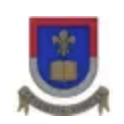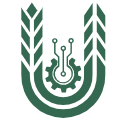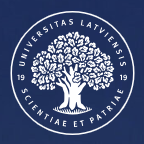Detailed introduction of the University of Latvia:
Introduction and Overview
The University of Latvia is the largest and oldest university in Latvia. It is located in the capital Riga and is one of the largest universities in the Baltic States. It provides a wide range of higher education opportunities for students from this country and other countries.
History and Establishment
Its history can be traced back to the Riga Institute of Technology established in 1862. On September 28, 1919, the Latvian Academy was established on the basis of the Riga Institute of Technology. In 1923, it was renamed "University of Latvia".
During the Soviet period, some disciplines were separated to form other higher education institutions. After Latvia's independence in 1991, the Latvian Supreme Council reconfirmed the charter of the University of Latvia and clarified it as a national educational, scientific and cultural institution.
School Strength
Faculty: It has a team of highly professional and experienced teachers, with a total of 821 faculty members, of which 91% are domestic faculty members and 21% are international faculty members. 9%, able to provide students with high-quality teaching and guidance.
Teaching facilities: The school is well-equipped with modern teaching buildings, laboratories, libraries and other teaching facilities. Its academic center continues to develop. In 2015, the Natural Science Building was put into use. In 2019 The Science Building was completed in 2017. In the future, it is planned to build a humanities and social science building, a technology center, a hotel, an academic square and advanced sports facilities.
Course Setting: Undergraduate, master's and doctoral degree courses are provided, covering humanities, philosophy, psychology, history, theology, education, social sciences, economics, political science, law, management, biology, geography, physics, geology, chemistry, mathematics, environmental science, health science and many other fields.
Institutional Nature
The University of Latvia is a public research university.
Educational Philosophy
Committed to providing high-quality higher education, improving the scientific and cultural quality of the whole people, cultivating various talents to serve the needs of the Latvian nation and people, promoting the close integration of academic research and social development, and contributing to the development of the country's economy, culture, education and other aspects.
Key laboratories and disciplines
Key disciplines: Biology, chemistry, physics, mathematics, economics, law, education, psychology, medicine and other disciplines are the key disciplines of the school, and have achieved remarkable results in teaching and scientific research.
Key laboratories: The school has a number of key laboratories, such as the Laser Center of the University of Latvia, which provide advanced experimental conditions for scientific research and teaching in related disciplines.
Department
The school has 13 colleges, as follows:
College of Biology: including the Department of Plant Physiology, the Department of Botany and Ecology, the Department of Human and Animal Physiology, the Department of Aquatic Biology, the Department of Microbiology and Biotechnology, the Department of Molecular Biology, the Department of Zoology and Animal Ecology, etc.
College of Chemistry: including the Department of Inorganic Chemistry, the Department of Analytical Chemistry, the Department of Organic Chemistry, the Department of Physical Chemistry, the Center for Food Chemistry, the Center for Chemistry Teaching Methods, etc.
College of Mathematics and Physics: including the Department of Optometry and Vision Science, the Department of Mathematics, the Department of Physics, the Laser Center of the University of Latvia, the A. Lipa School of Extramural Mathematics, etc.
College of Economics and Management: including the Department of Global Economics Interdisciplinary Research, the Department of Economics, the Department of Finance and Accounting, the Department of Management Science, etc.
College of Education and Psychology: including the Department of Educational Sciences, the Department of Education, the Department of Psychology, the Department of Teacher Training, the Sports Center, the Center for Adult Education, etc.
College of Geography and Earth Sciences: including the Department of Geography, the Department of Geology, etc.
College of History and Philosophy: dedicated to teaching and research in the fields of history and philosophy.
College of Law: cultivating professional legal talents and conducting academic research related to law.
Medical School: Cultivate professionals in the medical field and promote the development of medical research.
School of Modern Languages: Provide teaching and research in a variety of modern languages.
School of Philosophy and Art: Focus on academic exploration and talent training in the fields of philosophy and art.
School of Social Sciences: Covers teaching and research in social sciences such as sociology, political science, and economics.
School of Theology: Conducts education and research related to theology.
Ranking
Ranked 781-790 in the 2025 QS World University Rankings. It ranks 801-850 in the 2024 QS World University Rankings and 1001-1200 in the 2022 QS World University Rankings.
The USNEWS World Ranking in 2022 is 933, and the THE World Ranking in 2022 is 601.
Expenses
No clear and public information on tuition fees and other expenses was found. The school offers a variety of scholarships for students. You can download the scholarship guide for relevant information.
Campus
Campus location: The main campus is located at Raiņa bulvāris 19 in Riga, and there is also a new academic center in the Torņa kalns district.
Campus environment: The campus buildings have a certain historical heritage and cultural value, while integrating modern elements. Buildings such as the Natural Science Building and the Science Building of the new academic center provide students with a good learning and research environment. More modern facilities are also planned on campus to meet the learning, living and working needs of students and faculty.
-

Riga Technical University
-

Riga Stradins University
-

Baltic International Academy
-

Daugavpils University
-

Latvia University of Life Sciences and Technologies
-

Latvian Maritime Academy
-

Ventspils University of Applied Sciences
-

Vidzeme University of Applied Sciences
-

Jazepa Vitola Latvian Academy of Music
-

University of Latvia
-

Mesoamerican University
-

Istmo University
-

Mariano Galvez University of Guatemala
-

Regional University of Guatemala
-

Galileo University
-

Francisco Marroquín University
-

Rafael Landívar University
-

University of the Valley of Guatemala
-

University of San Carlos of Guatemala
-

Technological Institute of Tlaxcala Plateau
-

Golfo University
-

Technological University of South Sonora
-

Technological University of Huejotzingo
-

Tizimín Institute of Technology
-

Chilpancingo Institute of Technology
